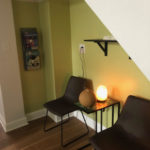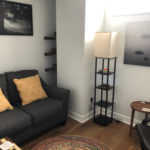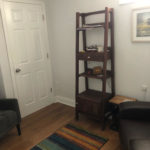
Sleep Hygiene
By: Riley Fortier, M.Ed.
Following healthy sleep habits will help you fall asleep and stay asleep better. There are a multitude of different practices, called “sleep hygiene” that are used to maximize the amount of time you’re spent sleeping.
12 tips to improve your sleep
- Avoid caffeine, alcohol, nicotine, and other chemicals that interfere with sleep.
- Turn your bedroom into a sleep-inducing environment.
- Establish a soothing pre-sleep routine.
- Go to sleep when you’re truly tired.
- Don’t watch the clock
- Use natural light during the day to your advantage
- Keep a consistent sleep schedule
- Nap early or not at all
- Finish your last meal hours before bedtime
- Drink enough water during the night so you’re not thirsty, but not enough to make you get up.
- Exercise earlier in the day rather than later
- Follow through – make sure you’re sticking to these tips and have your own routine to see long-term benefits
Insomnia
Many folks suffer from insomnia. Insomnia is having trouble falling asleep, staying asleep, or waking up feeling unrested. There are roughly 60 million Americans suffering from insomnia (source).
Some folks use melatonin to help fall asleep, or if it’s serious enough, sleeping pills prescribed by their doctor. Now, therapists are using CBT (cognitive behavioral therapy) to help folks sleep better.
How CBT-I works
Cognitive behavioral therapy for insomnia (CBT-I) is the most effective and long-lasting treatment for insomnia (source). CBT is a popular psychotherapy approach used to treat certain conditions like panic disorder or OCD. Patients learn the negative thought patterns and habits that are contributing to their problem so that they can work with their therapist to replace those thoughts and behaviors with more reasonable and healthy ones. CBT focuses on the idea that our brains develop reactions to stimuli, and over time, these reactions become habits, whether good or bad.
The goal of CBT-I is to teach the patient better sleep habits. During CBT-I therapy, a person will attend between 4 and 12 sessions with a psychologist, nurse practitioner, or other health professional specifically trained in CBT. The provider will ask the patients about their thoughts and behaviors around sleep (like how many hours of sleep they get and what kinds of anxieties they have). Patients will keep a sleepy diary and perform homework between sessions.
Common Techniques
- Sleep restriction
- Stimulus control
- Relaxation training
- Paradoxical intention
- Biofeedback
Cause for concern
If you’re employing sleep hygiene, and still are not able to sleep well, it might be time to reach out to a professional. Sleep specialists or psychotherapists doing CBT-I might be helpful.












